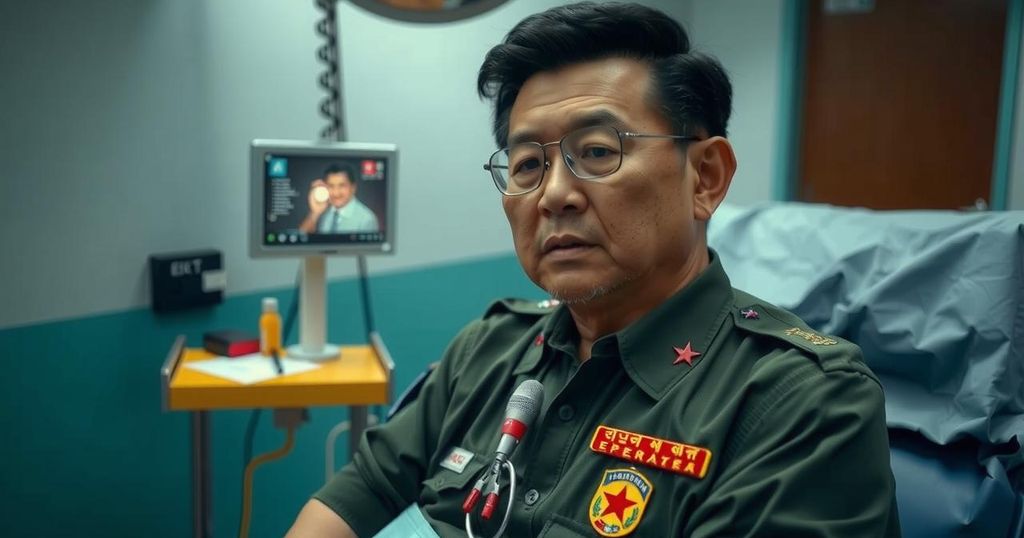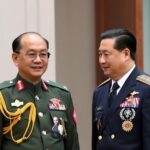Beijing Confirms MNDAA Leader’s Medical Visit Amidst Arrest Reports
Beijing confirmed that Peng Deren, leader of the MNDAA, is in China for medical care, amidst reports of his arrest by Chinese authorities. The MNDAA has recently strengthened its military position, raising concerns in Beijing about possible implications for the stability of the ruling junta and the region’s geopolitical landscape.
On Tuesday, Beijing confirmed that Peng Deren, the leader of the Myanmar National Democratic Alliance Army (MNDAA), had traveled to China for medical treatment, countering reports of his arrest on Chinese orders. The MNDAA, one of Myanmar’s most influential rebel factions, primarily operates in regions along the shared border with China, where it has engaged in protracted conflict against the military junta. Reports indicate that the MNDAA has recently gained significant ground, capturing key territories, raising Beijing’s concerns about the stability of the junta and the implications of increased autonomy among ethnic armed groups. Chinese authorities have emphasized that Peng’s presence in China is based on his application for medical assistance, yet they have not disclosed specifics regarding his current medical status or location. Peng, recognized for his discretion and avoidance of media exposure, is pivotal to ongoing conflicts in Myanmar, where various ethnic groups vie for control over valuable resources. The complexities of the relationships among Myanmar’s military, ethnic militias, and Chinese interests underscore the delicate balance Beijing seeks to maintain. In recent developments, the MNDAA’s recapturing of strategic locations highlights the challenges faced by Myanmar’s ruling authorities, particularly with the loss of the town of Laukkai to rebel forces. Despite reassessments by the junta to foster peace talks, analysts suggest that increasing territorial gains by armed ethnic groups may be unsettling for Beijing, which fears potential shifts in regional dynamics and the encroachment of Western influence amidst the ongoing strife. Moreover, China has reportedly responded to such military setbacks by limiting essential services to the Kokang region, viewed as a strategic measure to solidify its influence in the area while seeking to curtail unrest that could spill over into its territory.
The article discusses the recent announcement from Beijing regarding Peng Deren’s medical visit to China. This highlights the complex relationships involving the Myanmar military junta and various ethnic minority armed groups, such as the MNDAA, which have fought for autonomy and control over valuable resources in Myanmar. The backdrop of decades-long conflict and the geopolitical implications of China’s involvement in Myanmar adds layers to the situation, particularly as armed conflicts have escalated in the region.
In conclusion, Beijing’s clarification regarding Peng Deren’s presence in China sheds light on the intricate dynamics between the Myanmar military and ethnic armed groups. As the MNDAA continues to assert control over significant territories, questions surrounding stability and Beijing’s strategic interests in the region emerge, suggesting a cautious diplomatic balancing act. The developments underscore the ongoing conflict’s complexity and the region’s potential instability as various factions vie for power.
Original Source: www.barrons.com







Post Comment